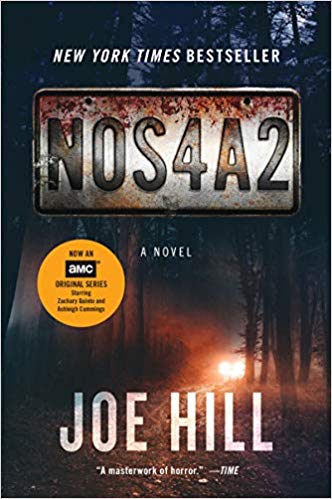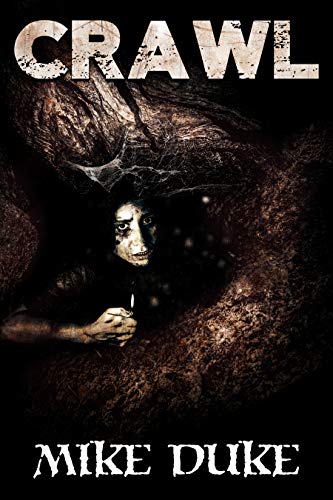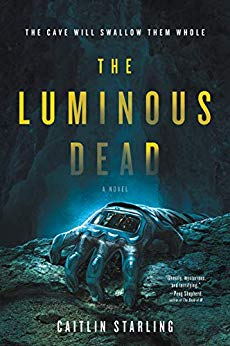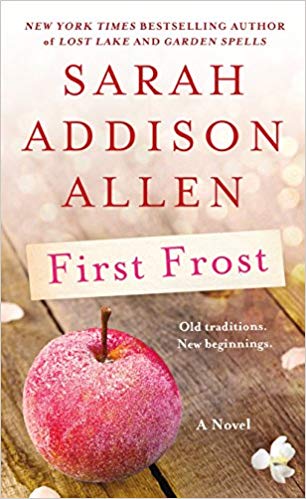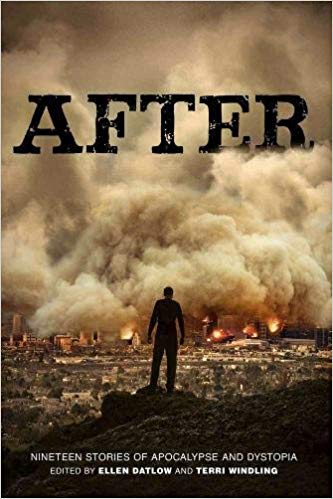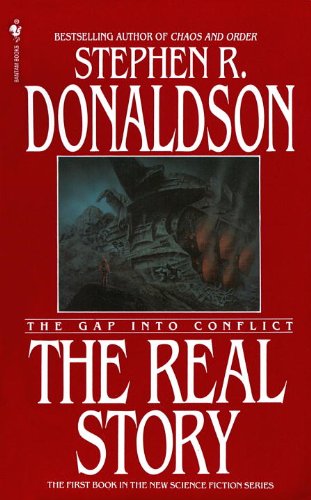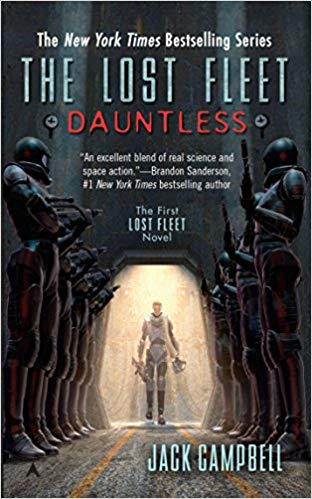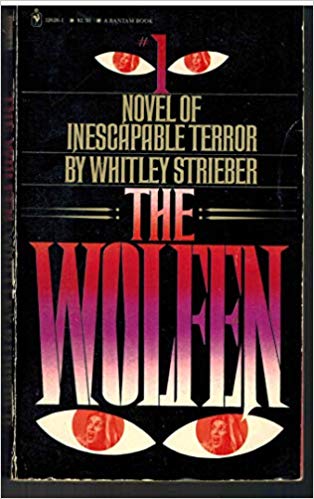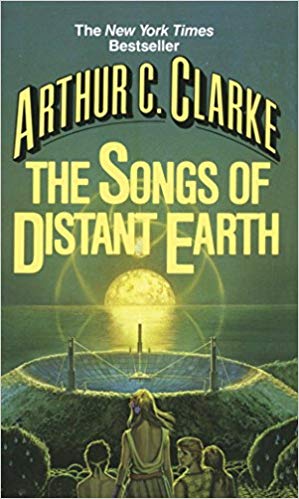
August 2019’s Reads
I read a ton of stuff in August, more than usual even. It was nice to binge read a little instead of having to spread reading a single book out over a few days or longer.
When I read Joe Hill's Horns earlier this year, I fell in love with his writing style and storytelling skill. I've been slowly working my way through his other books, spreading them out a little so that I don't run through them too quickly.
I finally found time for NOS4A2 in August. Fans of vampire stories should easily read that, but for those of you who aren't, the title is a play on Nosferatu, the titular character from a Horror movie from the silent film era.
NOS4A2 is told primarily from two perspectives, that of Victoria McQueen, a young woman who can find her way from any two points using a bridge that's no longer there, and Charlie Manx, whose 1938 Rolls-Royce helps him stay young so long as he feeds it the souls of children.
In many ways, the story is a riff off the classic vampire tale, but it has a modern twist that keeps it fresh in the readers' mind. While there are many, many disturbing elements to the story, it skirts the edges of true Horror; for me, at least, it wasn't truly scary so much as fascinatingly dark and twisted.
I caught the movie version of Horns on Netflix last week and am looking forward to seeing what the TV version of NOS4A2 is like.
I follow a few book club type groups on Facebook (when I'm there, which isn't often anymore). One of those groups is Books of Horror, and through there I was introduced to fellow Horror author Mike Duke.
Mike's books are not for the faint of heart. Crawl is no exception. In this novella, a newlywed couple goes on a hike near Mammoth Cave National Park when they run afowl of nature. The succeeding adventure hits on every fear of nature humans have, from creepy crawlies to raging mama bears.
I cannot recommend this book to anyone unafraid to face their own phobias, but readers who enjoy a crawl through their own fears will enjoy this quick read.
I picked up The Luminous Dead by Caitlin Starling based on the cover, which promises a light combination of Horror and Science Fiction and was billed as a Thriller blend for fans of Annihilation (Jeff VanderMeer) and The Martian (Andy Weir). Instead, I got a story that was strong on the mechanics (e.g. the grammar) but incredibly poorly told.
Gyre takes a job supposedly mapping mineral deposits in the cave system of her home planet. She's alone in the cave; her only link to the outside is Em, her handler, who single handedly serves as Gyre's support system.
Over the course of the story, Starling tries to induce tension through the interactions between Gyre, trapped in an inhospitable cave system within an astronaut-like suit, and Em, the voice on the other end of the communications link. Both have parent issues and that plays a heavy part in the story. A romance is improbably inserted in the middle without any support in the first part of the book, which was jarring.
It should've been good; Starling's mechanics aren't bad at all, but there's more to crafting a story than simply writing a good sentence. The repetitive nature of the narrative, the slowly drawn out plot, and the immaturity of the characters makes this a plodding read. If Starling had cut the story in half, The Luminous Dead would've lived up to the promises made by the cover and the blurb. As it is, I can't recommend this to anyone looking for Horror, Science Fiction, or a Thriller.
Yes, I re-read a Sarah Addison Allen book, this one First Frost, the second book in the Waverly family series.
I'm not going to review this one again, since I already have. Suffice it to say that it was just as good the second time around as it was the first. Allen's books are on my keeper shelf. I cannot recommend them enough, especially for readers who enjoy a light blend of Southern Literature, Magical Realism, and Romance.
I love short stories. That's no secret. So when someone introduced me to award-winning editor Ellen Datlow, I was thrilled by the possibilities.
After: Nineteen Stories of Apocalypse and Dystopia was my first foray into Datlow's short story collections. The stories contained within are exactly what the title promises, stories set in apocalyptic, post-apocalyptic, and dystopian worlds.
The collection starts off well with strong stories by Carrie Ryan, N.K. Jemisin, and Katherine Langrish. I was not pleased by the heavy reliance on the first person present tense by a couple of the authors, but if you can overlook that, these stories were pretty darn good.
It quickly went downhill from there, culminating in two truly awful stories in the middle of the collection, "Blood Drive" by Jeffrey Ford and "How Th'irth Wint Rong by Hapless Joy @ Homeskool.guv" by Richard Bowes. The first presents gun owners as violent and irresponsible, which is far from the truth. (The vast majority of gun owners are peaceful and highly responsible precisely because they understand how dangerous guns are.) The second pokes fun at homeschoolers, which is sure to burn my hide since I'm a homeschooling mom. (And I would put my son's education up against any of his peers'.)
When writers base their characters on stereotypes, the stories suffer, and in this case the obvious biases against, respectively, armed self-defense and homeschooling were shoveled in rather than subtly layered. If that weren't enough, the first was just poorly written. While the second story was a bit more clever, that cleverness failed to make up for the story's other failures. The fact that both stories take aim at natural rights (the first the absolute right of self-defense and the second a parent's right to educate the children in his or her care as he or she sees fit) did not help. Notice, though, that the two stories I single out are the ones that ticked me off.
Once you get past those stories, the quality rises quite sharply (without relying on clumsy political commentary) and the collection ends strongly. I can't pick out any favorites; most of the stories were that good. If you enjoy short stories, then you're sure to find something in After that pleases your reading taste buds.
When I joined the Books of Horror Facebook group last year, one of the first things I did was throw my name in for a Christmas swap. My secret Krampus sent me, among other deliciously horrifying treats, every book in Stephen R. Donaldson's The Gap Cycle Series in paperback.
I finally got around to reading The Gap into Conflict: The Real Story, the first book in the series, this month. And it was, wow. Brutal.
The story revolves around the relationships between three characters caught in a bizarre love triangle of sorts: Angus, a pirate and truly horrible person; Morn, a gorgeous police officer; and Nick, a pirate known for his charm and mystery.
The story begins with various iterations of what people think is going on before getting down to the real story, and the real story is that Angus forces Morn into a sex slave relationship during which he brutally and repeatedly rapes her. Morn conspires with Nick, in a very low key way, to have Angus arrested, after which Morn submits to an equally appalling sexual relationship with Nick.
Normally, I'd be more subtle in the details, but since a lot of my readers are female, I thought it appropriate to issue a warning (something I almost never do, so that gives you an idea of how brutal the story really is).
The Real Story isn't bad. I quite liked it in spite of the sexual content. But the parts that I liked best were Donaldson's unflinching and intimate portrayals of the characters' shades of gray. No one is innocent in The Real Story. No one is the hero and no one is the villain either. It's a complicated tale, on an emotional level, which makes it all the more compelling.
In a lot of genres, I am the exception that proves there shouldn't be a rule about readership in the first place. I grew up loving Science Fiction, Horror, and Suspense, which most people think of as "men's" fiction.
Pfft. Who cares what "people" think you should read? Read what you like, right? And I love me some Military SciFi.
I love it so much that I've got a long list of books series I want to read, so when I was in the mood for library books (as opposed to books on my to-be-read shelves), I ordered up Dauntless, the first book in The Lost Fleet Series by Jack Campbell.
When a Syndic force murders his admiral, Black Jack Geary goes from rescuee to commander of the Alliance fleet almost overnight. On top of outwitting the Syndic fleet and getting the remnants of the Alliance fleet home, he's faced with sailors who are accustomed to acting first and thinking never in their headlong rush to emulate their legendary hero...none other than Black Jack himself.
Campbell is a retired Naval officer and it shows. The details of the battles and spaceships are numerous and realistically told. While this does bog the story down just a bit, it's still a fun, action-packed read. If you like Military SciFi at all, Dauntless is a must-read.
Arthur C. Clarke is a legendary Science Fiction writer in large part because of his big ideas. In The Songs of Distant Earth, he manages to introduce so many big ideas about human colonization that the reader walks away with his or her head spinning.
Not long from now, scientists figure out that the sun is going to die a brilliant and fiery death, wiping the human race from existence unless something is done. The something turns out to be colony ships sent to distant worlds, and because Clarke is the one writing this, the science of getting there is very plausible...and very slow.
The story is centered on the results of one of those colony ships, the civilization that arose on the planet Thalassa after human colonization. The Songs of Distant Earth is a brilliant look at how humans might choose to live on some distant world, but don't look for any deep conflict. There just isn't any, which is a shame because the overall story suffers.
But even though Clarke is normally an excellent storyteller, The Songs of Distant Earth has become a classic because of its ideas, not because of the (admittedly lackluster) storytelling. And that's exactly why I recommend it. Then again, I was always fascinated by human colonization of the galaxy, so maybe I'm a bit biased there.
I am a Stephen Graham Jones fan. Never heard of him? Well, let me introduce you to this master of Horror, much of which is influenced by his Blackfeet heritage and his loves of all things that go bump in the night, including werewolves. And he also likes Metal (the cheesy Hair Metal from the '80s), so of course he's at the top of my must-read list.
Not long back, the Ladies of the Fright podcast did a tropisode on werewolves featuring Jones and his book Mongrels, which I haven't read yet. (I know, my bad, but it's on my list.) Meanwhile, the LotF included a list of werewolf books. Since I haven't been able to lay hands on Mongrels, I started at the top of the list with Whitley Strieber's The Wolfen, a classic werewolf story.
Detective Becky Neff is assigned to investigate the deaths of two fellow police officers at a dump in another precinct. During the investigation, she and her partner George Wilson, a mysoginistic throwback who is secretly in love with her, uncover a series of gruesome murders that puts them hot on the trail of a pack of super intelligent wolf-like creatures.
The Wolfen is a unique twist on the werewolf trope, as it should be, given its publication date (1978). Reading it creeped me out, and that's really, really hard to do. I live alone in a one-hundred-year-old house with creaky floors and walls, which has immunized me somewhat against the creeps, so when a book creeps me out, you know it's good.
In addition to all the fiction, I read Release Strategies by Craig Martelle. Very useful information for authors of all flavors, indie and trad published.
I'm reading It by Stephen King right now. This is a massive book. Which you probably already knew. That's why they keep making movies out of the story; they're easier to consume than the book. Ha. I'm going to set it aside when I reach the 1/3 mark and read something else for a while, but I'll come back to it eventually.
Happy reading!
